
Netflix is Changing Strategies to Elevate User Engagement
Posted on February 5th, 2026
Netflix’s mobile revamp is a strategic acknowledgment that user behavior has shifted toward social-first, vertically consumed, algorithmically surfaced content.
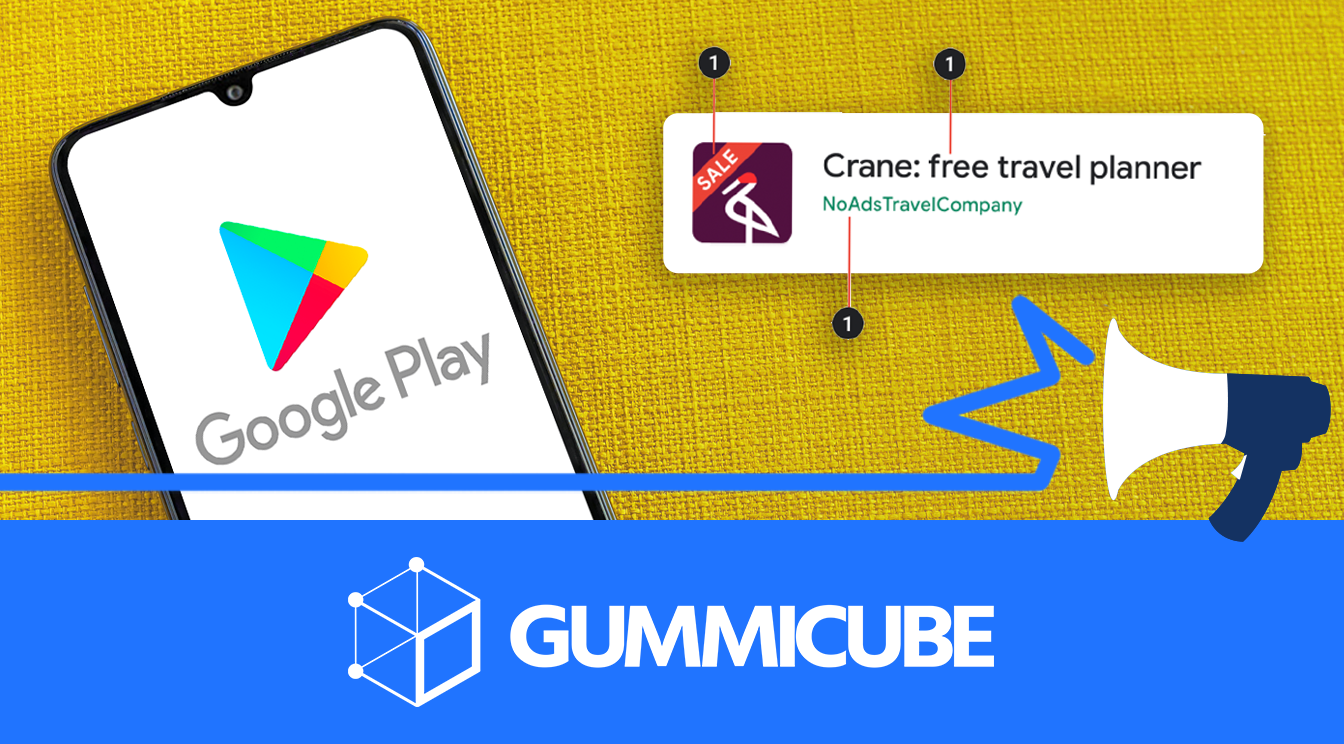
In a bid to improve user experience, Google has recently announced more changes to the Google Play Developer Policy guidelines, set to take effect “later this year.”
While Google already has safeguards in place to keep developers from creating misleading store listings, one of the goals of this change is to further ensure developers accurately and honestly represent their apps. Set to go into effect sometime later this year, Google will be implementing policy changes for character count and promotional language, as well as new recommended guidelines for Store listing preview assets.
Google has announced that developers will need to keep the character count of app titles restricted to 30 characters or fewer. This policy change will arguably be the most impactful across the board, as there are innumerable apps that have fully utilized the existing 50 character limit with a branded app name and accompanying title tags that describe their app using relevant keywords.
The main benefit of shorter titles is that truncation will not pose as much of an issue to readability on search page listings. Currently, the best practice is to keep the most informative and relevant information in the first half of the title, as depending on the device the second half could be cut off from view.
While it is important for developers to start planning revised titles now, it is best to hold off on implementation until Google announces the enforcement deadline. The reason being that the title metadata is the most heavily weighted field that Google uses to index apps in search results. By shortening the titles too soon, developers could miss out on the improved visibility offered by up to 20 potential characters worth of keywords.
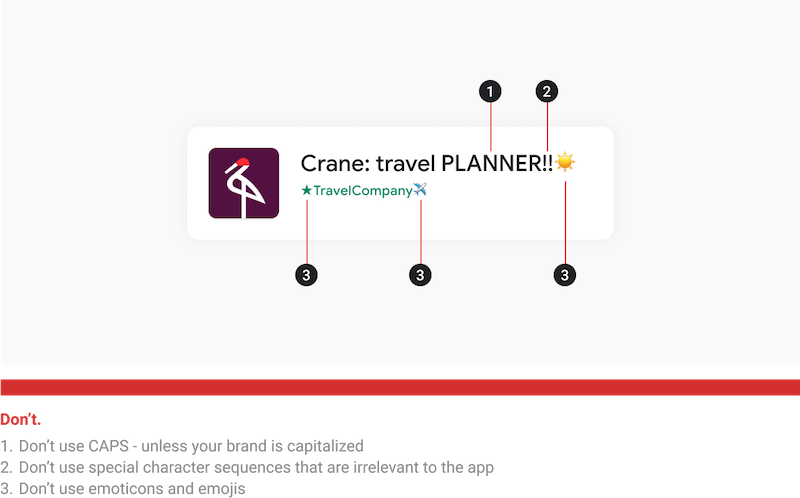
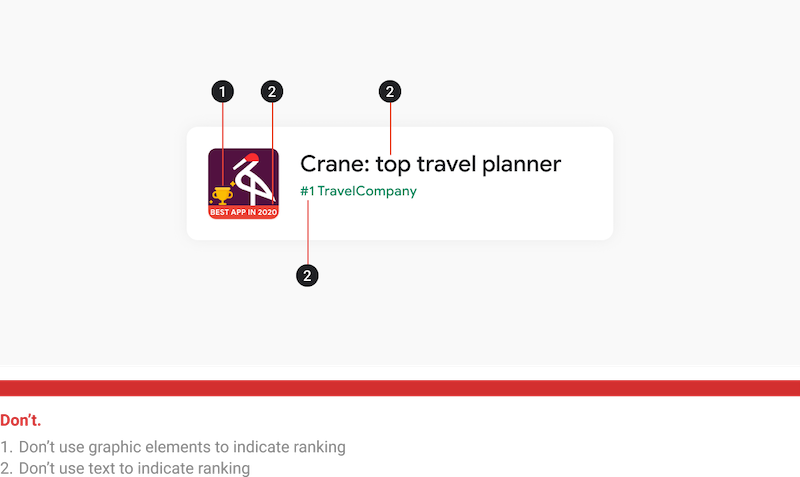
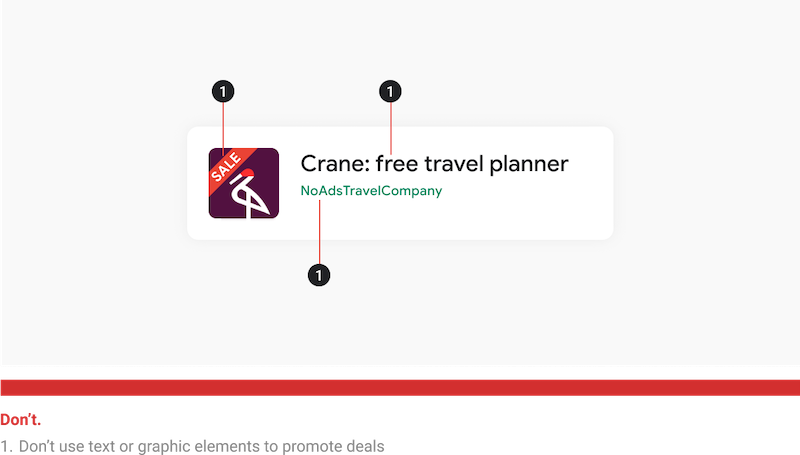
App titles will no longer be allowed to include emojis, repeated punctuation or special characters, or all caps.
Along with the character limit, app titles will no longer be allowed to include emojis, repeated punctuation or special characters, or all caps (unless it is a branded feature) which will clean up the presentation of apps on the Play Store.
In addition to the updated character limit, Google will be enforcing rules to eliminate promotional messaging in the title field, as well as in the developer name. Types of promotional language that will be banned include allusions to performance (e.g. “Top,” “Best,” or “#1”), pricing (e.g. “Free” or “Sale”), and calls-to-action (e.g. “Update” or “Download Now”).
Terms like “best” and “free” can help build long-tail search terms, like “best games” or “free puzzle games”, which would now need to be moved into the description metadata. The limited area of the title will now need to focus on the branded name, along with the most core terms that explain the app.
Google will also be enforcing a policy to curb the use of misleading promotional messaging or imagery in app icon images. Along with banning the use of the same promotional language that applies to the title and developer name, icons may no longer incorporate misleading or promotional imagery in icons.
Imagery such as mimicking notifications, using graphic elements to indicate ranking, or falsely attributing the “Instant App” or other Play program features will lead to apps being rejected from the Play Store.
While misleading iconography is not a good idea to maintain a long-term user, some text elements that will soon be in violation of Google’s policy may have also shown increased conversion in past Google Play Experiments. For developers that need to make changes to their icon, now would be a good time to gather actionable data via Google Play Experiments to see how removing these changes will impact conversion rates. Tests can be run to find a comparably (or hopefully, better) converting icon than the one they will soon have to change.
In conjunction with the hard rules coming to the Play Store later this year, Google also announced new guidelines for preview assets. While not adhering to these guidelines won’t necessarily get an app pulled or rejected from the Play Store, it will impact the eligibility for an app to be featured or promoted across Google services.
Google outlines important questions for developers to consider concerning preview assets that will help them stay within these guidelines:
Do the preview assets accurately represent the app or game?Do the preview assets provide enough information to help users decide whether to install?Are the preview assets free of buzzwords like "free" or "best" and instead focus on providing meaningful information about the unique aspects of your app or game?Are the preview assets localized correctly and easy to read?
While these are mostly already considerations developers make when creating preview assets, many apps and games do not follow this etiquette. Similar to icons, developers who will need to make updates to comply on the yet-to-be announced enforcement date may want to run Experiments to see how these changes impact their conversion rates, and work toward finding something compliant that converts.
Developers should keep themselves informed on changing policies to the Play Store app listings coming later this year. While important changes to language and graphics should be tested in Experiments sooner rather than later, shortening title character count would benefit from being postponed until a deadline is set for enforcement.
In general, updating preview assets to be more honest, genuine, and informative may not be a hard rule, however developers should make an effort to conform to these guidelines in order to stay relevant and promotable within the Play Store.
Want to learn more about App Store Optimization? Contact Gummicube, and we’ll help get your strategy started.

Netflix’s mobile revamp is a strategic acknowledgment that user behavior has shifted toward social-first, vertically consumed, algorithmically surfaced content.

Apple’s upcoming Siri update, powered by Google’s Gemini AI model, represents a meaningful inflection point for the App Store ecosystem and ASO strategies.
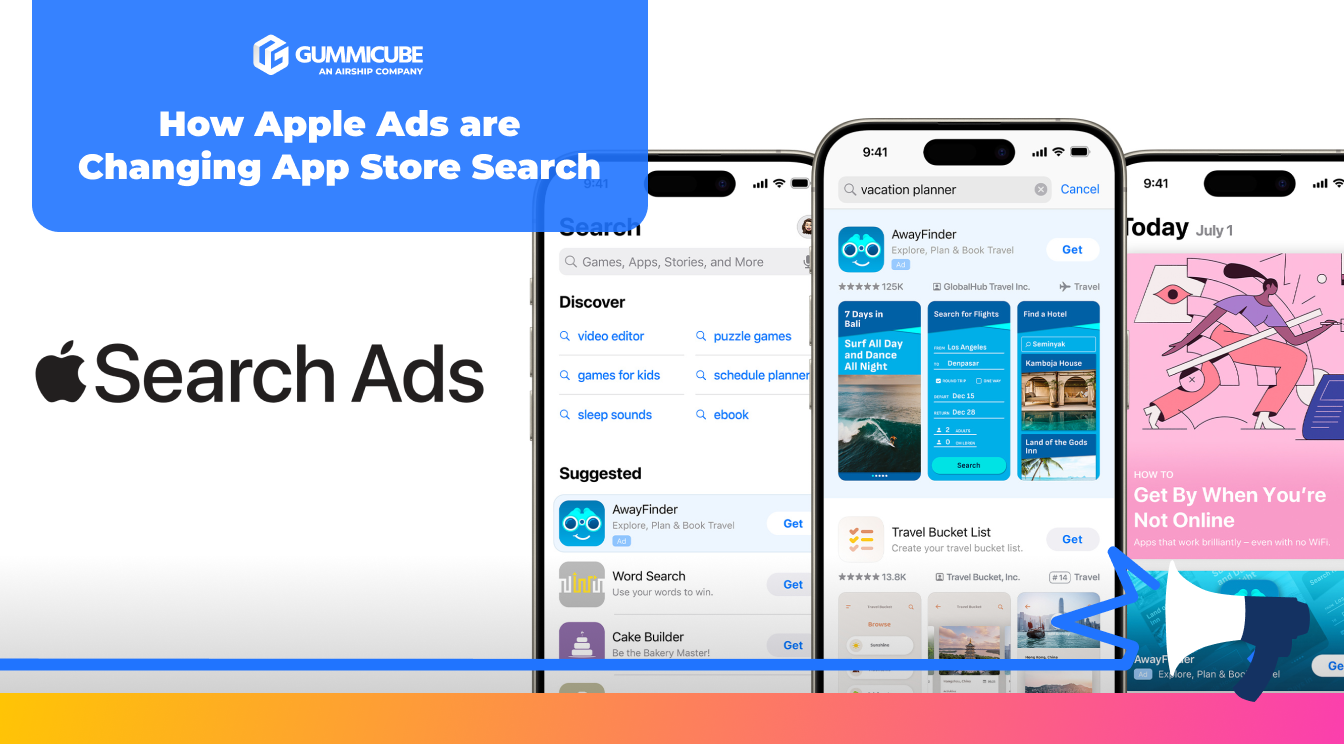
Apple Ads are changing App Store search by expanding ad placements while simultaneously reinforcing relevance as the core driver of visibility. Read more!